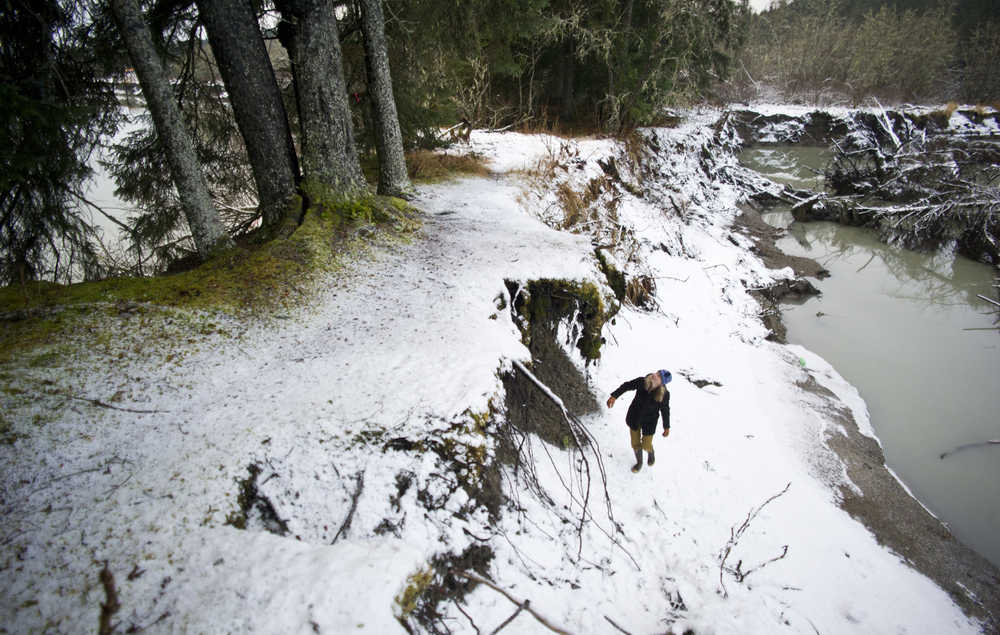JUNEAU — Gov. Bill Walker has proposed giving the state Legislature the power to designate waters where no long-term degradation is allowed, a move that critics fear would politicize the process.
The state must establish a process for designating so-called outstanding national resource waters under the federal Clean Water Act, the state Department of Environmental Conservation says. But the department says it’s not clear whether it or the Legislature has that authority: state law gives the department authority to set water quality standards while the state constitution leaves land-use designations to the Legislature.
Designations are meant to provide special protections to waters of “exceptional recreational or ecological significance, the department says. Processes used in other states range from legislative approval to designations by a board, commission or state agency, the department said in material provided to lawmakers.
In a letter accompanying the bill, Walker wrote that a designation has the potential “to permanently limit development” and that given the far-reaching consequences the final authority should rest with the Legislature.
No waters in Alaska carry that designation currently though there are several pending nominations.
Some conservationists worry the designation process will be politicized by having the Legislature involved.
Melanie Brown, a Bristol Bay fishing permit holder, said she’s concerned with the makeup of the Legislature and “where I feel their interests lie. If they actually had a nomination in front of them, my feeling is that they would not allow the nomination to go through,” she said. She said a final decision should rest with scientists, “and our legislators don’t have that level of expertise.”
In written testimony, the executive director of the Alaska Mining Association, Deantha Crockett, said designations would be a barrier to resource development and some municipal projects.
The association would prefer that the state seek an exemption from having a designation process in place, she said. But absent that the association proposed several changes to the bill. Some issues it outlined, including when nominations need to come before the Legislature and proof that a water body is unique, were addressed in a Senate Resources Committee rewrite of the bill.
The bill would allow any resident to make a nomination to the department. Under the Senate Resources rewrite, the department can advance a nomination to the Legislature for consideration if it makes several determinations, including that there is no other available or effective method of protecting the water. Department of Environmental Conservation Commissioner Larry Hartig last week told the committee that provision could be a barrier for a designation because “there’s always going to be something else, like declaring a park.”
The bill also calls for a description of the potential impacts of a designation on endangered or threatened species, recreational fisheries and water supplies for Alaskans’ use.
Hartig also expressed concerns with costs involved with the added provisions and how those would be paid. The state is grappling with a multibillion-dollar budget amid low oil prices, and departments statewide are seeing cuts.
Committee Chairwoman Cathy Giessel, R-Anchorage, told Hartig that this is information that will be needed, regardless of who’s making the determination.
The decision can’t be made on a political basis, Giessel said. “We need science. So regardless of how this falls, it will be on you to do this work and find a way to fund it.”

